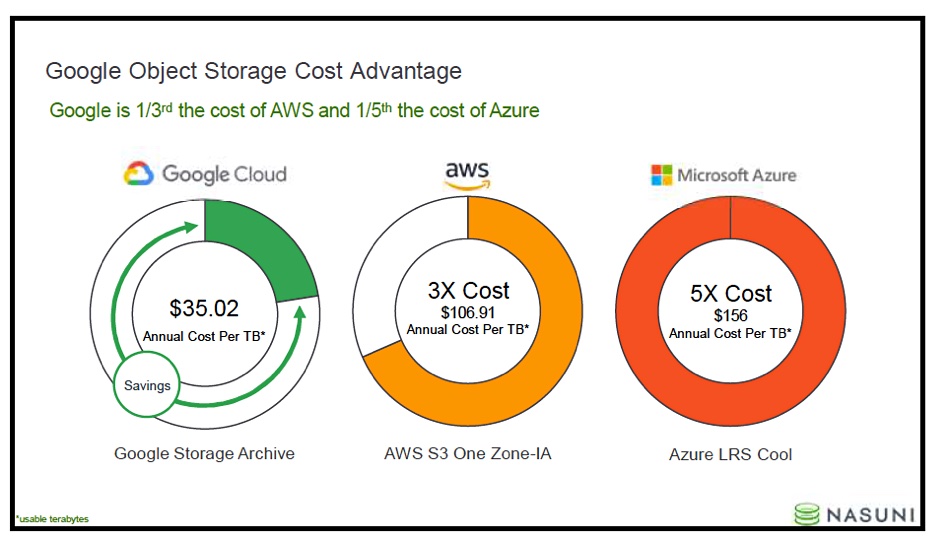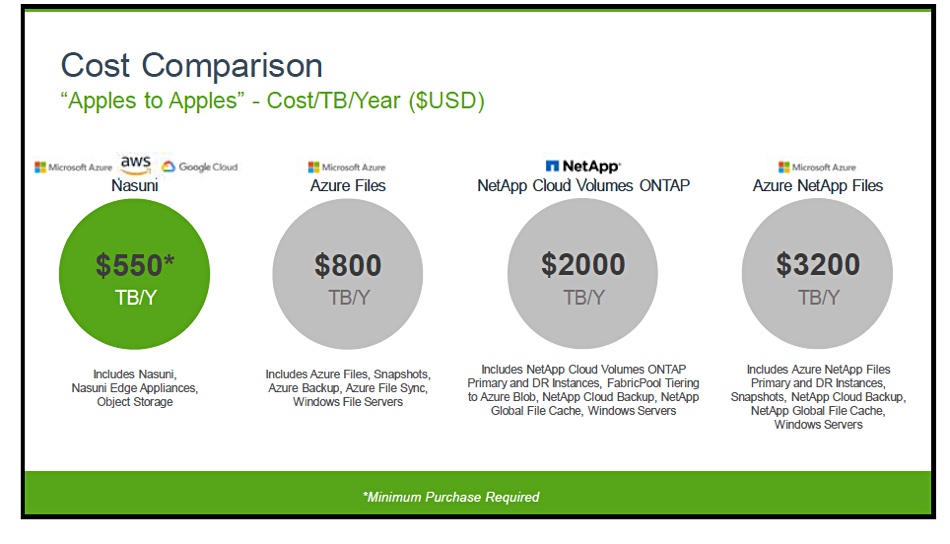Google has expanded its relationship with Nasuni, integrating company’s the object-based file system with Google Cloud Platform, and agreeing to co-sell/ co-market the company’s software.
Google’s sales reps will be paid on Nasuni-GCP license sales and customers can buy Nasuni’s service directly through the Google Marketplace.
Nasuni’s object-based file system is already available on Google Cloud, and the company has co-sell agreements in place with AWS and Azure. CTO Andres Rodriguez told us: “In the past [Nasuni] customers could ‘hack’ and use Google with an AWS connector but what we are announcing is native integration, marketplace inclusion, and the fact they are co-selling with us. All new.”

The deeper GCP integration delivers speed, Rodriguez said. “Accessing the file system directly in the object layer can be faster.”
A full scan of a billion files can be completed more quickly with Nasuni’s object layer storage than by using a file system directory-level inspection (a so-called treewalk).

Rodriguez said Google is hungry for Windows file workloads (SMB) to move from on-premises filers to its GCP service and Nasuni can help with that migration. He claimed: “Everyone is moving to virtual machines running in the public cloud.”
Rodriguez said Google’s own high-performance FileStore product, Elastifile, is less well suited to the on-premises Windows filer migration task.

Nasuni background
Nasuni has around 400 employees, more than 530 enterprise customers and has more than 125PB of data (26.7 billion files) under management. The company claims 42 per cent CAGR in annual recurring revenue (ARR) since 2017. It is targeting $100m in ARR in the next 12 to 18 months.
Nasuni’s UniFS file system provides a Network Attached Storage (NAS) interface to users in the cloud or on-premises. The object storage base makes Nasuni’s UniFS less expensive than public cloud file-level storage, and the edge caching appliances add the access speed that object storage in the cloud lacks.
Caching edge appliances are used on-premises to provide fast access to data. These can scale to the hundreds with thousands of users. The public cloud stores a golden master of the file data and this is used for sharing across a customer’s edge locations and also, via in-cloud edge appliances, fast access within public cloud regions.
Its focus is on storing mainstream unstructured data files and not the high-performance computing file market – leaving that to Panasas, VAST Data and WekaIO. Nasuni’s main competitive supplier focus is on NetApp, according to Rodrigues.“We go toe to toe with NetApp.”
A future development could see scale-out edge appliances. Asked if Nasuni’s file software supported the provisioning of storage to Kubernetes-orchestrated containers, CTO Rodriguez said: “Not yet.”








